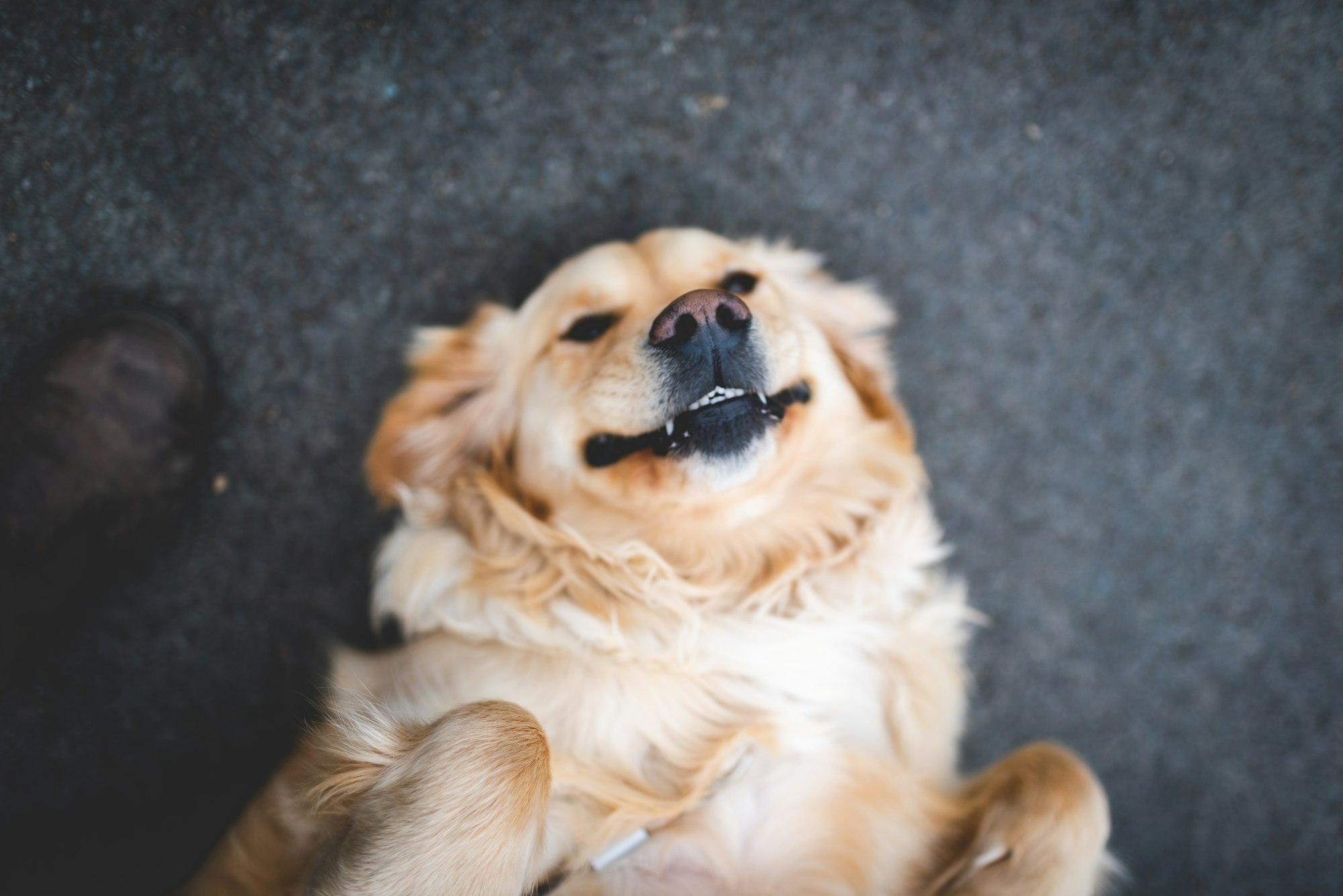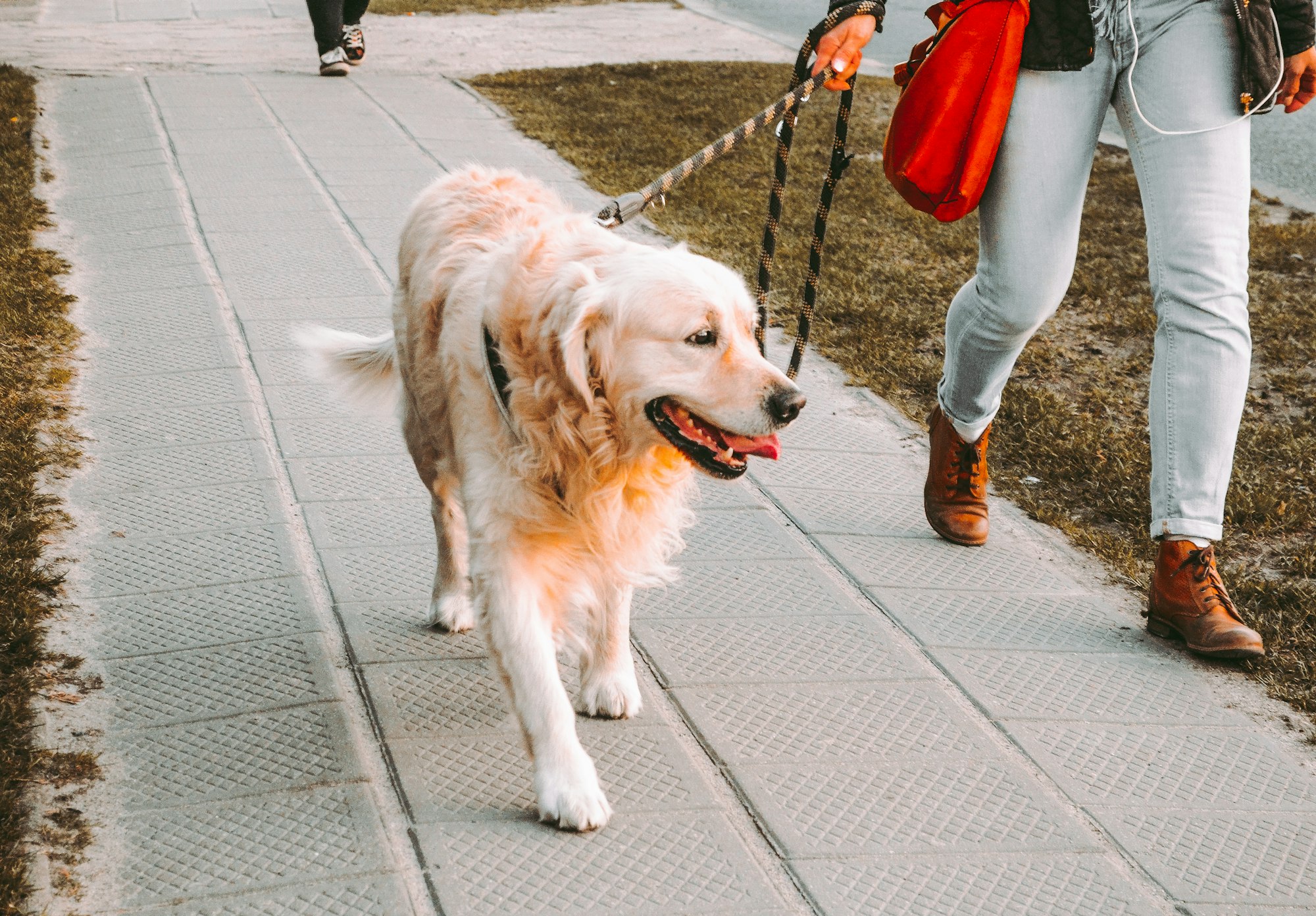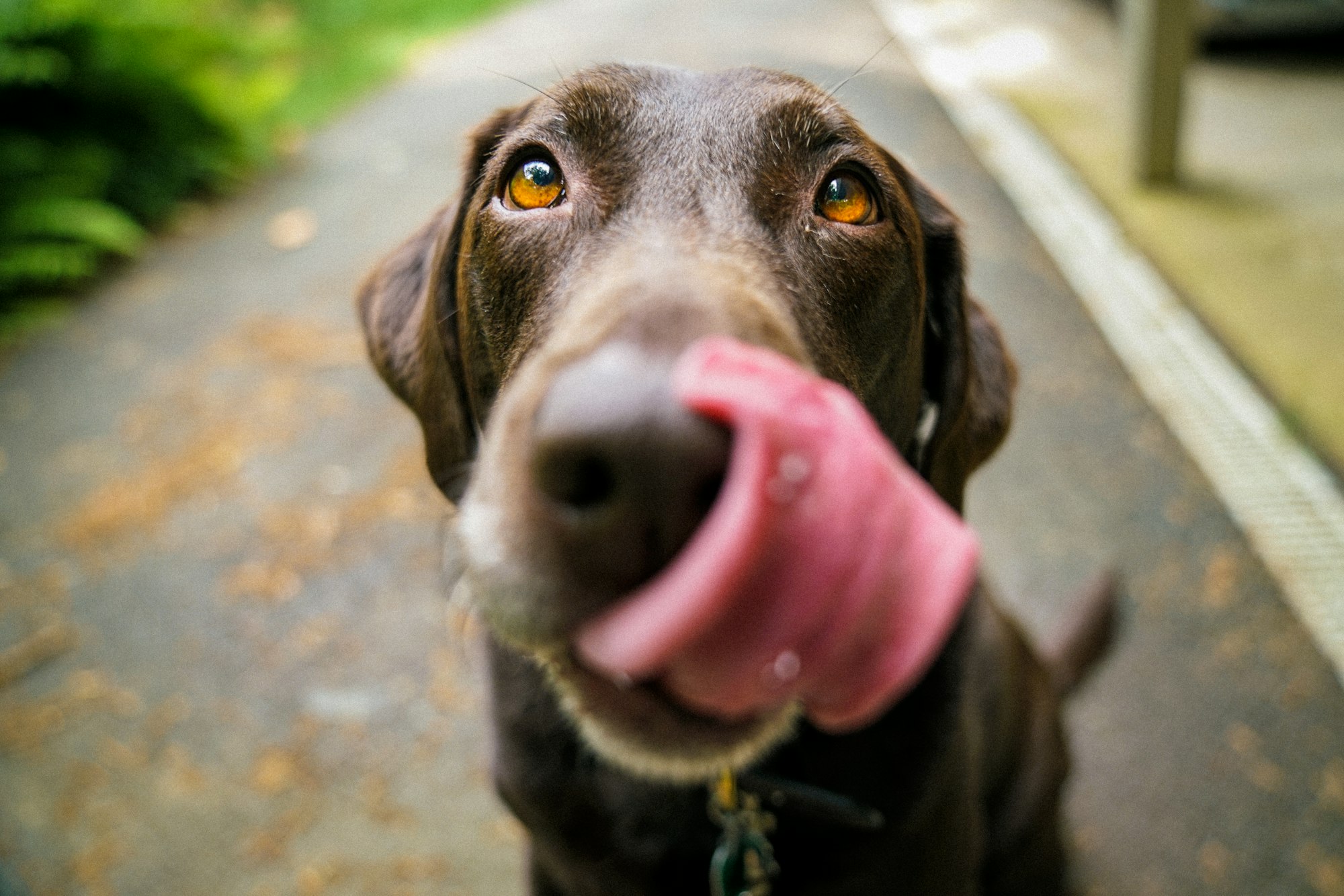Dogs are wonderful creatures that bring joy and companionship to our lives. However, their habit of eating poop can be both disgusting and concerning for pet owners. This behavior, known as coprophagia, is not uncommon among dogs and can have various underlying causes such as nutritional deficiencies, medical conditions, or behavioral issues.
While there are several commercial products available to deter dogs from eating poop, they can be expensive and may not always be effective. Plus, most dogs can simply be trained to avoid this behavior in the long run!
So in this article, we will explore some simple and natural home remedies that can help you stop your dog from eating poop and promote a healthier and happier lifestyle for your furry friend.
How to Stop a Dog From Eating Poop
If you're a dog owner, you may have experienced the unpleasant sight of your furry friend eating poop. This behavior, known as coprophagia, can be both embarrassing and concerning for pet owners.
While there are various reasons why dogs may engage in this behavior, there are also several effective ways to stop them from doing so. In this article, we will discuss two important strategies that can help prevent coprophagia in dogs.

Walk Your Dog on a Leash
Walking your dog on a leash is an essential part of responsible pet ownership, and it can also help in preventing your dog from eating poop. By keeping your dog on a leash during walks, you can have better control over their movements and prevent them from wandering off and finding poop to eat.
When walking your dog, keep a close eye on their behavior and body language. If you notice that your dog is sniffing around for poop, gently redirect their attention with a treat or a toy. If your dog does manage to find poop, use a firm command like "leave it" or "no" to discourage them from eating it.
It's also important to make sure that your dog is getting enough exercise and mental stimulation during walks. Dogs that are bored or under-stimulated may be more likely to engage in coprophagia as a way to alleviate their boredom.
Feed Your Dog High-Quality Food
Feeding your dog a high-quality diet is not only essential for their overall health but can also help in reducing their urge to eat poop. Dogs that are lacking in essential nutrients may resort to eating poop as a way to supplement their diet.
When choosing a dog food, look for high-quality options that are rich in protein and other essential nutrients. Avoid foods that contain artificial preservatives, fillers, and by-products, as these can be difficult for your dog to digest and may contribute to their desire to eat poop.
Additionally, consider adding natural supplements to your dog's diet, such as probiotics or digestive enzymes, to support their digestive health and reduce their risk of nutrient deficiencies. Consult with your veterinarian before making any significant changes to your dog's diet.
It's also important to ensure that your dog is getting enough food and not feeling hungry or deprived. Dogs that are underfed or have irregular feeding schedules may be more likely to resort to eating poop as a way to satisfy their hunger.
Immediately Pick Up After Your Dog
One of the most straightforward ways to prevent your dog from eating poop is by immediately picking up after them. When you take your dog for a walk or allow them to play in the yard, make sure to bring along poop bags and clean up after them as soon as they are done.
Leaving poop in the yard or on a walk can be tempting for dogs to eat, especially if they are hungry or bored. Additionally, the longer poop remains in the environment, the more it can attract other animals and pests, which can contribute to the spread of diseases and parasites.
By promptly picking up after your dog, you can eliminate the opportunity for them to eat poop and keep your environment clean and hygienic. Make sure to dispose of the poop bags properly in a trash can or designated disposal bin.
Try Adding These to Your Dog’s Diet
There are several natural supplements that you can add to your dog's diet that may help to deter them from eating poop. These include:
Pineapple: Pineapple contains an enzyme called bromelain, which can help to break down proteins in your dog's food and make their poop less appealing to eat.
Pumpkin: Pumpkin is rich in fiber and can help regulate your dog's digestive system. This can reduce the likelihood of them developing nutritional deficiencies and resorting to eating poop as a way to supplement their diet.
Apple cider vinegar: Adding a small amount of apple cider vinegar to your dog's food can help to increase their stomach acid and make their poop taste less appealing.
Supplements: There are several supplements available that are specifically designed to reduce your dog's desire to eat poop. These supplements usually contain ingredients like yucca, parsley, and chamomile, which can help to promote digestive health and reduce the likelihood of coprophagia.
It's important to remember that these supplements should not replace a high-quality diet and regular exercise. Consult with your veterinarian before adding any supplements to your dog's diet to ensure that they are safe and appropriate for your dog's specific needs.

Why Do Dogs Eat Poop?
Dogs eating poop, also known as coprophagia, is a common behavior that can be caused by several factors. Here are some of the most common reasons why dogs eat poop:
- Nutritional deficiencies: If your dog is not getting enough essential nutrients in their diet, they may resort to eating poop as a way to supplement their diet.
- Medical issues: Some medical conditions, such as malabsorption syndromes, pancreatic insufficiency, or parasites, can cause dogs to feel hungry and crave non-food items like poop.
- Behavioral issues: Dogs may develop coprophagia as a behavioral issue, often as a result of boredom, anxiety, or stress. Some dogs may also learn this behavior from other dogs or their environment.
- Age: Puppies may eat poop as part of their exploration and learning process, and senior dogs may have age-related changes in their sense of taste and smell, making poop more appealing.
- Breed predisposition: Some breeds, such as Labrador Retrievers, Beagles, and German Shepherds, are more prone to developing coprophagia than others.
Behavioral Reasons Dogs Eat Poop
Behavioral issues are one of the common reasons why dogs eat poop. Here are some of the behavioral reasons why dogs engage in coprophagia:
Boredom: Dogs that are under-stimulated and bored may resort to eating poop as a way to occupy themselves.
Attention-seeking: Dogs may eat poop to get attention from their owners or to receive a reaction from them.
Anxiety and stress: Dogs may develop coprophagia as a coping mechanism for anxiety or stress.
Cleanliness: Some dogs have an innate desire to keep their environment clean, and they may eat poop as a way to maintain a clean living space.
Habit: Dogs may learn to eat poop from other dogs or their environment, and this behavior may become a habit that is challenging to break.
Medical Reasons Dogs Eat Poop
Medical issues can also cause dogs to eat poop. Here are some of the medical reasons why dogs engage in coprophagia:
Nutritional deficiencies: Dogs that are not getting enough essential nutrients in their diet may resort to eating poop as a way to supplement their diet.
Digestive problems: Some dogs may have digestive problems, such as malabsorption syndromes or pancreatic insufficiency, that can cause them to feel hungry and crave non-food items like poop.
Parasites: Parasites, such as hookworms or whipworms, can cause dogs to feel hungry and have a strong desire to eat non-food items like poop.
Pica syndrome: Pica syndrome is a medical condition in which dogs have a strong craving to eat non-food items like dirt, rocks, or poop.
What Should I Do if My Dog Is Eating Cat Poop?
If your dog is eating cat poop, it's important to take action to prevent this behavior as soon as possible. Here are some steps you can take to address this problem:
Keep litter boxes out of reach: One of the easiest ways to prevent your dog from eating cat poop is to keep litter boxes out of their reach. Place litter boxes in a room that your dog cannot access, such as a bathroom or utility room.
Supervise your dog: When your dog is around your cat, make sure to supervise them closely to prevent them from accessing the litter box.
Train your dog: Training your dog to avoid the litter box is another effective solution. You can use positive reinforcement techniques to teach your dog to stay away from the litter box and reward them when they display appropriate behavior.
Use deterrents: You can use deterrents to discourage your dog from eating cat poop. Some common deterrents include placing a cover over the litter box or using products that make the poop unappetizing to dogs.
Address underlying behavioral issues: If your dog continues to eat cat poop despite your efforts to prevent it, it's possible that there may be an underlying behavioral issue. In this case, you may need to work with a professional dog trainer to address any training or behavioral issues.
Final Thoughts
Coprophagia, or the behavior of dogs eating poop, can be a frustrating and concerning issue for many pet owners. However, it's essential to remember that this behavior is not uncommon, and there are several effective strategies to prevent it.
By providing your dog with a high-quality diet, exercising them regularly, supervising them closely, and addressing any underlying behavioral or medical issues, you can help to prevent coprophagia and promote a healthy and happy lifestyle for your furry friend.
If you're struggling to prevent your dog from eating poop, it's important to consult with your veterinarian to rule out any underlying health problems and ensure your dog's overall well-being.
Remember, patience, consistency, and positive reinforcement are key to addressing any behavioral issues in dogs. With the right approach, you can help your dog overcome their coprophagia and enjoy a happy and healthy life with you.
For more helpful articles about pet-parenting tips, check out the Off Leash blog at TryFi.com.
Want to know more about TryFi.com? The Fi Dog Collar is a GPS tracking collar that not only keeps track of your dog’s location, activity levels, and sleep patterns, but it also alerts you if your dog escapes your backyard. This is the fastest way to find your dog after an escape. Try the Fi Dog Collar today!






